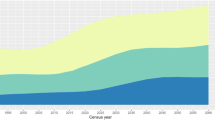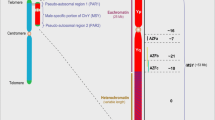Abstract
Neurological manifestations in Lesch-Nyhan disease (LND) are attributed to the effect of hypoxanthine-guanine phosphoribosyltransferase (HPRT) deficiency on the nervous system development. HPRT deficiency causes the excretion of increased amounts of hypoxanthine into the extracellular medium and we hypothesized that HPRT deficiency related to hypoxanthine excess may then lead, directly or indirectly, to transcriptional aberrations in a variety of genes essential for the function and development of striatal progenitor cells. We have examined the effect of hypoxanthine excess on the differentiation of neurons in the well-established human NTERA-2 cl.D1 (NT2/D1) embryonic carcinoma neurogenesis model. NT2/D1 cells differentiate along neuroectodermal lineages after exposure to retinoic acid (RA). Hypoxanthine effects on RA-differentiation were examined by the changes on the expression of various transcription factor genes essential to neuronal differentiation and by the changes in tyrosine hydroxylase (TH), dopamine, adenosine and serotonin receptors (DRD, ADORA, HTR). We report that hypoxanthine excess deregulate WNT4, from Wnt/β-catenin pathway, and engrailed homeobox 1 gene and increased TH and dopamine DRD1, adenosine ADORA2A and serotonin HTR7 receptors, whose over expression characterize early neuro-developmental processes.




Similar content being viewed by others
References
Ceballos-Picot I, Mockel L, Potier MC et al (2009) Hypoxanthine-guanine phosphoribosyl transferase regulates early developmental programming of dopamine neurons: implications for Lesch-Nyhan disease pathogenesis. Hum Mol Genet 18:2317–2327
Connolly GP (2001) Hypoxanthine-guanine phosphoribosyltransferase-deficiency produces aberrant neurite outgrowth of rodent neuroblastoma used to model the neurological disorder Lesch Nyhan syndrome. Neurosci Lett 314:61–64
Connolly GP, Duley JA, Stacey NC (2001) Abnormal development of hypoxanthine-guanine phosphoribosyltransferase-deficient CNS neuroblastoma. Brain Res 918:20–27
Edwards A, Voss H, Rice P et al (1990) Automated DNA sequencing of the human HPRT locus. Genomics 6:593–608
Ernst M, Zametkin AJ, Matochik JA et al (1996) Presynaptic dopaminergic deficits in Lesch-Nyhan disease. New Engl J Med 334:1568–1572
Fu R, Sutcliffe D, Zhao H et al (2014) Clinical severity in Lesch-Nyhan disease: the role of residual enzyme and compensatory pathways. Mol Genet Metab 114:55–61
Garcia MG, Puig JG, Torres RJ (2009) Abnormal adenosine and dopamine receptor expression in lymphocytes of Lesch Nyhan patients. Brain Behav Immun 23:1125–1131
Garcia MG, Puig JG, Torres RJ (2012) Adenosine, dopamine and serotonin receptors imbalance in lymphocytes of Lesch-Nyhan patients. J Inherit Metab Dis 35:1129–1135
Göttle M, Prudente CN, Fu R et al (2014) Loss of dopamine phenotype among midbrain neurons in Lesch-Nyhan disease. Ann Neurol 76:95–107
Guibinga GH, Hsu S, Friedmann T (2010) Deficiency of the housekeeping gene hypoxanthine-guanine phosphoribosyltransferase (HPRT) dysregulates neurogenesis. Mol Ther 18:54–62
Guibinga GH, Barron N, Pandori W (2014) Striatal neurodevelopment is dysregulated in purine metabolism deficiency and impacts DARPP-32, BDNF/TrkB expression and signaling: new insights on the molecular and cellular basis of Lesch-Nyhan syndrome. PLoS ONE 9:e96575
Jinnah HA, Visser JE, Harris JC, Lesch-Nyhan Disease International Study Group et al (2006) Delineation of the motor disorder of Lesch-Nyhan disease. Brain 129:1201–1217
Kang TH, Guibinga GH, Jinnah HA, Friedmann T (2011) HPRT deficiency coordinately dysregulates canonical Wnt and presenilin-1 signaling: a neuro-developmental regulatory role for a housekeeping gene? PLoS ONE 6:e16572
Kang TH, Park Y, Bader JS, Friedmann T (2013) The housekeeping gene hypoxanthine guanine phosphoribosyltransferase (HPRT) regulates multiple developmental and metabolic pathways of murine embryonic stem cell neuronal differentiation. PLoS ONE 8:e74967
Lesch M, Nyhan WL (1964) A familial disorder of uric acid metabolism and central nervous system function. Am J Med 36:561–570
Ma MH, Stacey NC, Connolly GP (2001) Hypoxanthine impairs morphogenesis and enhances proliferation of a neuroblastoma model of Lesch Nyhan syndrome. J Neurosci Res 63:500–508
Pelled D, Sperling O, Zoref-Shani E (1999) Abnormal purine and pyrimidine content in primary astroglia cultures from hypoxanthine-guanine phosphoribosyltransferase-deficient transgenic mice. J Neurochem 72:1139–1145
Pleasure SJ, Page C, Lee VM (1992) Pure, postmitotic, polarized human neurons derived from NTera 2 cells provide a system for expressing exogenous proteins in terminally differentiated neurons. J Neurosci 12:1802–1815
Prior C, Torres RJ, Puig JG (2007) Hypoxanthine decreases equilibrative type of adenosine transport in lymphocytes from Lesch-Nyhan patients. Eur J Clin Investig 37:905–911
Puig JG, Torres RJ, Mateos FA et al (2001) The spectrum of hypoxanthine-guanine phosphoribosyltransferase (HPRT) deficiency. Clinical experience based on 22 patients from 18 Spanish families. Medicine (Baltimore) 80:102–112
Rosenbloom FM, Henderson JF, Caldwell IC, Kelley WN, Seegmiller JE (1968) Biochemical bases of accelerated purine biosynthesis de novo in human fibroblasts lacking hypoxanthine-guanine phosphoribosyltransferase. J Biol Chem 243:1166–1173
Schretlen DJ, Varvaris M, Ho TE et al (2013) Regional brain volume abnormalities in Lesch-Nyhan disease and its variants: a cross-sectional study. Lancet Neurol 12:1151–1158
Seegmiller JE, Rosenbloom FM, Kelley WN (1967) Enzyme defect associated with a sex-linked human neurological disorder and excessive purine synthesis. Science 155:1682–1684
Stacey NC, Ma MH, Duley JA, Connolly GP (2000) Abnormalities in cellular adhesion of neuroblastoma and fibroblast models of Lesch Nyhan syndrome. Neuroscience 98:397–401
Torres RJ, DeAntonio I, Prior C, Puig JG (2004) Adenosine transport in peripheral blood lymphocytes from Lesch-Nyhan patients. Biochem J 377:733–739
Wong DF, Harris JC, Naidu S et al (1996) Dopamine transporters are markedly reduced in Lesch-Nyhan disease in vivo. Proc Natl Acad Sci U S A 93:5539–5543
Yeh J, Zheng S, Howard BD (1998) Impaired differentiation of HPRT-deficient dopaminergic neurons: a possible mechanism underlying neuronal dysfunction in Lesch-Nyhan syndrome. J Neurosci Res 53:78–85
Funding sources
Supported by grant from the Fondo de Investigación Sanitaria del Instituto de Salud Carlos III (Healthcare Research Fund of the Carlos III Health Institute) (FIS, 11/0598).
Conflict of interest
None.
This article does not contain any studies with human or animal subjects performed by the any of the authors.
Details of the contributions of individual authors
All authors contribute to the planning, conduct, and reporting of the work described in the article.
Author information
Authors and Affiliations
Corresponding author
Additional information
Communicated by: John Christodoulou
Rights and permissions
About this article
Cite this article
Torres, R.J., Puig, J.G. Hypoxanthine deregulates genes involved in early neuronal development. Implications in Lesch-Nyhan disease pathogenesis. J Inherit Metab Dis 38, 1109–1118 (2015). https://doi.org/10.1007/s10545-015-9854-4
Received:
Revised:
Accepted:
Published:
Issue Date:
DOI: https://doi.org/10.1007/s10545-015-9854-4




